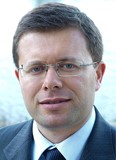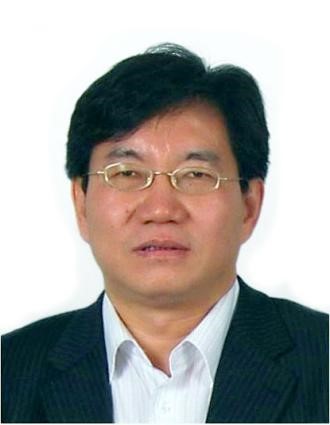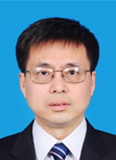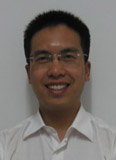
| Conference Keynote Speakers |
| Prof. Schahram Dustdar, IEEE Fellow Technische Universität Wien, AustriaSpeech title: Engineering the New Fabric of the Distributed Systems Computing Continuum Abstract: As humans, things, software and AI continue to become the entangled fabric of distributed systems, systems engineers and researchers are facing novel challenges. In this talk, we analyze the role of IoT, Edge, and Cloud, as well as AI in the co-evolution of distributed systems for the new decade. We identify challenges and discuss a roadmap that these new distributed systems have to address. We take a closer look at how a cyber-physical fabric will be complemented by AI operationalization to enable seamless end-to-end distributed systems. Biography: Schahram Dustdar is Full Professor of Computer Science heading the Research Division of Distributed Systems at the TU Wien, Austria. He holds several honorary positions: University of California (USC) Los Angeles; Monash University in Melbourne, Shanghai University, Macquarie University in Sydney, University Pompeu Fabra, Barcelona, Spain. From Dec 2016 until Jan 2017 he was a Visiting Professor at the University of Sevilla, Spain and from January until June 2017 he was a Visiting Professor at UC Berkeley, USA. From 1999 – 2007 he worked as the co-founder and chief scientist of Caramba Labs Software AG in Vienna (acquired by Engineering NetWorld AG), a venture capital co-funded software company focused on software for collaborative processes in teams. Caramba Labs was nominated for several (international and national) awards: World Technology Award in the category of Software (2001); Top-Startup companies in Austria (CapGemini Ernst & Young) (2002); MERCUR Innovation award of the Austrian Chamber of Commerce (2002). He is co-founder of edorer.com (USA) and sinoaus.net (based in Nanjing, China), where he is the chief-scientist. He is founding co-Editor-in-Chief of ACM Transactions on Internet of Things (ACM TIoT) as well as Editor-in-Chief of Computing (Springer). He is an Associate Editor of IEEE Transactions on Services Computing, IEEE Transactions on Cloud Computing, ACM Computing Surveys, ACM Transactions on the Web, and ACM Transactions on Internet Technology, as well as on the editorial board of IEEE Internet Computing and IEEE Computer. Dustdar is recipient of multiple awards: IEEE TCSVC Outstanding Leadership Award (2018), IEEE TCSC Award for Excellence in Scalable Computing (2019), TCI Distinguished Service Award 2021 by the IEEE Technical Committee on the Internet (TCI) (2021), ACM Distinguished Scientist (2009), ACM Distinguished Speaker (2021), IBM Faculty Award (2012). He is an elected member of the Academia Europaea: The Academy of Europe, where he is chairman of the Informatics Section, as well as an IEEE Fellow (2016) and an Asia-Pacific Artificial Intelligence Association (AAIA) Fellow and President (2021). |
| Prof. Joel J. P. C. Rodrigues, IEEE Fellow College of Computer Science and Technology, China University of Petroleum (East China), Qingdao, China; Secan Faculty of Ceará, and Instituto de Telecomunicações, Portugal Speech title: Leveraging Smart Environments with Internet of Things Biography: Joel J. P. C. Rodrigues [Fellow, IEEE & AAIA] is with the College of Computer Science and Technology, China University of Petroleum, Qingdao, China; Senac Faculty of Ceará, Brazil; and senior researcher at the Instituto de Telecomunicações, Portugal. Prof. Rodrigues is an Highly Cited Researcher (Clarivate), N. 1 of the top scientists in computer science in Brazil (Research.com), the leader of the Next Generation Networks and Applications (NetGNA) research group (CNPq), Member Representative of the IEEE Communications Society on the IEEE Biometrics Council, and the President of the scientific council at ParkUrbis – Covilhã Science and Technology Park. He was Director for Conference Development - IEEE ComSoc Board of Governors, an IEEE Distinguished Lecturer, Technical Activities Committee Chair of the IEEE ComSoc Latin America Region Board, a Past-Chair of the IEEE ComSoc Technical Committee (TC) on eHealth and the TC on Communications Software, a Steering Committee member of the IEEE Life Sciences Technical Community and Publications co-Chair. He is the editor-in-chief of the International Journal of E-Health and Medical Communications and editorial board member of several high-reputed journals (mainly, from IEEE). He has been general chair and TPC Chair of many international conferences, including IEEE ICC, IEEE GLOBECOM, IEEE HEALTHCOM, and IEEE LatinCom. He has authored or coauthored about 1000 papers in refereed international journals and conferences, 3 books, 2 patents, and 1 ITU-T Recommendation. He had been awarded several Outstanding Leadership and Outstanding Service Awards by IEEE Communications Society and several best papers awards. Prof. Rodrigues is a member of the Internet Society, a senior member ACM, and Fellow of AAIA and IEEE. |
| Prof. Fushuan Wen, IEEE Fellow Speech Title: Selected Applications of Artificial Intelligence in Power Systems Abstract: Applications of artificial intelligence (AI) in power systems could trace back to early 1980’s. Numerous publications are currently available regarding the applications of existing various AI methods including expert systems, artificial neural networks, fuzzy sets and others to different fields/subjects in power systems. In this talk, the research history of AI applications in power systems will be briefly surveyed first, and then some selected traditional and emerging applications presented. Specifically, this speech will cover the following topics: 1. Brief research history of artificial intelligence applications in power systems 2. Selected traditional applications (1) Load forecasting and electricity price forecasting (2) Security analysis (3) Alarm processing (4) Fault diagnosis (5) Electricity market 3. Emerging applications 4. Prospect for future research. Biography: Professor Fushuan Wen received the BE and ME degrees from Tianjin University, Tianjin, China, in 1985 and 1988, respectively, and the PhD degree from Zhejiang University, Hangzhou, China, in 1991, all in electrical engineering. He joined the faculty of Zhejiang University in 1991, and has been a full professor and the director of the Institute of Power Economics and Information since 1997, and the director of Zhejiang University-Insigma Joint Research Center for Smart Grids since 2010. He has been undertaking various teaching, research and visiting appointments in National University of Singapore (NSTB Postdoctoral Fellow, Research Fellow), Hong Kong Polytechnic University (Research Fellow, Visiting Assistant Professor), University of Hong Kong (Research Assistant Professor), South China University of Technology (University Distinguished Professor), University of New South Wales in Australia (ARC Project Senior Fellow, Senior Visiting Fellow), Queensland University of Technology in Australia (CSIRO and ARC Project Visiting Fellow), Brunei University of Technology (Professor in Power Systems), Technical University of Denmark (Otto Monsted Guest Professor in Power Systems), Nanyang Technological University in Singapore (Visiting Fellow), Murdoch University in Australia (Adjunct Professor), Tallinn University of Technology (Professor in Energy Systems), Hangzhou Dianzi University in China (Yusheng XUE Education Foundation Distinguished Professor), Commonwealth Scientific and Industrial Research Organization (CSIRO) in Australia (Honorary Visiting Scientist), Shenzhen Institute of Artificial Intelligence and Robotics for Society (Visiting Principal Research Scientist). His research interests include: 1) power economics and electricity markets; 2) power system investment, planning and operation optimization; 3) smart grids and electric vehicles; 4) power system alarm processing, fault diagnosis and system restoration; 5) artificial intelligence applications in power and integrated energy systems. He has published 200+ SCI-indexed papers, 650+ EI-indexed papers, and 740+ Scopus-indexed papers. His publications have been cited for 16000+ times. He has completed and is undertaking more than 170 grants and projects from governmental organizations and industry. Prof Wen received many awards both at the national level and provincial level, including the most prestigious National Natural Science Award of China. He has been listed in "Most Cited Chinese Researchers" in seven consecutive years since 2015 by Elsevier, and is the author of one of the China's 100 Most Influential Domestic Academic Papers in 2016. Prof Wen is the editor-in-chief of Energy Conversion and Economics (SPERI, IET, Wiley), the deputy editor-in-chief of Journal of Automation of Electric Power Systems, a subject editor in power system economics of IET Generation, Transmission and Distribution, associate editor of Journal of Energy Engineering and Journal of Modern Power Systems and Clean Energy. He is also on the editorial boards of more than 10 journals. |
| Professor Jizhong Zhu, IEEE Fellow South China University of Technology, China Biography: Jizhong Zhu is a Professor of South China University of Technology, and National Distinguished Expert. He is an IET Fellow, IEEE PES Smart Building, Loads, Customer Systems Technical Committee member, Chair of IEEE SBLC Load Subcommittee, Chair of IEEE SBLC Asia-Pacific Working Group, IEEE SMC Technical Committee on Intelligent Power and Energy Systems Technical Committee member. He is also an Expert of IEEE 2030.9 Standard WG on Micro-grids, Expert of International Electrotechnical Commission WGs IEC SEG6, IEC TC22 AHG1, IEC TC22 AHG2, respectively, and Chair of IEEE Standard IEEE P2781 - Load Modeling and Simulation for Power Systems. Dr. Zhu has worked at ALSTOM Grid Inc. in Washington State, Howard University in Washington, D.C., the National University of Singapore, Brunel University in England, and Chongqing University in China. He was a Senior Principal Power Systems Engineer as well as a Fellow with ALSTOM Grid Inc., and an honorable advisory professor of Chongqing University. He has published six books as an author and co-author, as well as about two hundred papers in the international journals and conferences. His research interest is in the analysis, operation, planning and control of power systems, smart grid, power markets as well as applications of renewable energy. |
| Professor Haipeng Chen Jilin University, China Speech title: Analysis of Human Motion Prediction Abstract: Human motion prediction is the prediction of future human motion based on observed motion sequences, and it can be used in a variety of domains, such as human-computer interaction, machine intelligence, and autonomous vehicles. Due to the high dimensionality of the human body as well as the randomness of human motion posture, how to efficiently model the motion context and explore the dependencies between joints is essential to achieve accurate human motion prediction. This report will present the current research status of human motion prediction, and introduce the latest research work of our team, and finally discuss the research trends in this field. Biography: Haipeng Chen is Professor and PhD supervisor at the College of Computer Science and Technology, Jilin University. His research interest is machine learning and visual reasoning. He has long career in medical image analysis and processing, image forensics and human behaviour understanding, etc. His research team enjoys good cooperation in academic exchanges with famous scholars from National University of Singapore, Zhejiang University, and University of Science and Technology of China. In recent years, he has undertaken seven research projects, including General Project supported by National Natural Science Foundation of China (NSFC) and the National Key Research and Development Program (NKRP)–sub-projects. He has delivered more than 50 papers, of which the latest research findings on human behaviour understanding were published in ACM MM2021. |
| Associate Professor Yuru Wang School of Information Science and Technology, Northeast Normal University, China Speech title: General Knowledge Model in Face Expression Recognition Abstract: Recent advancements in facial expression datasets have resulted in well-established large-scale datasets, which has led to significant progress in recognizing facial expressions using deep learning frameworks. Compared to facial macro-expression recognition, a facial action unit, although it is small, can provide more detailed information about the human face, and its representation describes a more precise and complete facial expression. However, the limited dataset could make it impossible to achieve good results using data-driven models. And this is what our research concern. This report will show an effective way to achieve accurate facial recognition with limited datasets. Biography: Yuru Wang is an Associate Professor at the School of Information Science and Technology, Northeast Normal University. Her main research interests are computer vision and machine learning. She has been engaged in video analysis, face analysis and human behaviour analysis for many years. As a subject leader, she has presided over several national and provincial projects and published more than ten papers in well-known conferences and journals on computer vision. |
| Professor Chunyi Chen Changchun University of Science and Technology, China Speech title: Visual-Perception Computation and Rendering-Acceleration Methods for 3D Scene Images Abstract: 3D rendering has been widely used in film and television production. Path tracing, a computer graphics Monte Carlo method, is a simple, versatile, and flexible technique for rendering realistic 3D scenes. It is able to support progressive refinement; however, it has a large computational overhead. The human eye is capable of detecting only a limited range of visual information, and for high-quality film and television rendering, only visual perceptual levels of accuracy are needed. In order to achieve faster rendering of 3D path tracking, the visual perception computation of 3D images, coupled with the required visual perception computation accuracy for each pixel, can be used to support adaptive allocation of path samples to pixels. This report describes our research on visual saliency solving for panoramic scenes and 3D models, the influence of the laws of resolution on the perception of stereoscopic rendering, and the effect of visual perception on the acceleration of de-redundancy in path-tracking rendering. Biography: Chunyi Chen is Professor, PhD, and PhD supervisor at School of Computer Science and Technology, Changchun University of Science and Technology. His main research interests cover panoramic stereo modelling and processing, wireless optical communication, information security, and new film imaging and display. He has undertaken many research projects supported by the National Natural Science Foundation of China; the National Science and Technology Support Program; the National Key R&D Program; the 863 Program; the 973 Program; Chinese Postdoctoral Science Foundation; the Jilin Provincial Science and Technology Development Program; and the Chongqing Natural Science Foundation. A number of his research findings have been applied in the field of cultural theme parks, virtual museum exhibition, long-distance optical information transmission, etc. He is Member of the Virtual Reality Committee, China Society of Image and Graphics, Director of Society of Image and Graphics, and Director of Jilin Association of Robot. |






